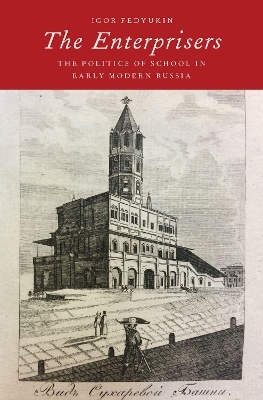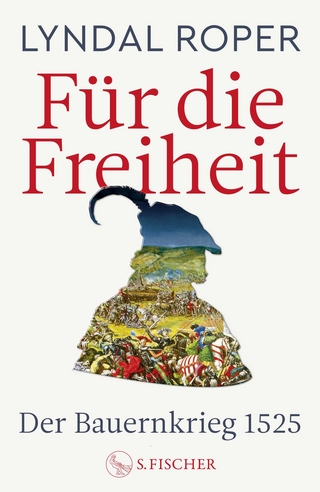
The Enterprisers
The Politics of School in Early Modern Russia
Seiten
2019
Oxford University Press Inc (Verlag)
978-0-19-084500-1 (ISBN)
Oxford University Press Inc (Verlag)
978-0-19-084500-1 (ISBN)
Fedyukin draws on a wealth of unpublished archival sources to demonstrate that the evolution of "modern" schools in Russia under Peter I and his successors was driven not by the omnipresent monarch or the impersonal state, but rather by the efforts of "administrative entrepreneurs" seeking to advance their own agendas.
The Enterprisers traces the emergence of the "modern" school in Russia during the reigns of Peter I and his immediate successors, up to the accession of Catherine II. Creation of the new, secular, technically-oriented schools based on the imported Western European blueprints is traditionally presented as the key element in Peter I's transformation of Russia.
The tsar, it is assumed, needed schools to train officers and engineers for his new army and the navy, and so he personally designed these new institutions and forced them upon his unwilling subjects. In this sense, school also stands in as a metaphor for modern institutions in Russia in general, which are likewise seen as created from the top down, by the forceful state, in response to its military and technological needs.
Yet, in reality, Peter I himself never wrote much about education, and while he championed "learning" in a broad sense, he had remarkably little to say about the ways schools and schooling should be organized. Nor were his general and admirals, including foreigners in Russian service, keen on promoting formal schooling: for them, practical apprenticeship still remained the preferred method of training.
Rather, as Fedyukin argues in this book, the trajectories of institutional change were determined by the efforts of "administrative entrepreneurs"-or projecteurs, as they were also called-who built new schools as they sought to achieve diverse career goals, promoted their own pet ideas, advanced their claims for expertise, and competed for status and resources. By drawing on a wealth of unpublished archival sources, Fedyukin explores the "micropolitics" behind the key episodes of educational innovation in the first half of the eighteenth century and offers an entirely new way of thinking about "Petrine revolution" and about the early modern state in Russia.
The Enterprisers traces the emergence of the "modern" school in Russia during the reigns of Peter I and his immediate successors, up to the accession of Catherine II. Creation of the new, secular, technically-oriented schools based on the imported Western European blueprints is traditionally presented as the key element in Peter I's transformation of Russia.
The tsar, it is assumed, needed schools to train officers and engineers for his new army and the navy, and so he personally designed these new institutions and forced them upon his unwilling subjects. In this sense, school also stands in as a metaphor for modern institutions in Russia in general, which are likewise seen as created from the top down, by the forceful state, in response to its military and technological needs.
Yet, in reality, Peter I himself never wrote much about education, and while he championed "learning" in a broad sense, he had remarkably little to say about the ways schools and schooling should be organized. Nor were his general and admirals, including foreigners in Russian service, keen on promoting formal schooling: for them, practical apprenticeship still remained the preferred method of training.
Rather, as Fedyukin argues in this book, the trajectories of institutional change were determined by the efforts of "administrative entrepreneurs"-or projecteurs, as they were also called-who built new schools as they sought to achieve diverse career goals, promoted their own pet ideas, advanced their claims for expertise, and competed for status and resources. By drawing on a wealth of unpublished archival sources, Fedyukin explores the "micropolitics" behind the key episodes of educational innovation in the first half of the eighteenth century and offers an entirely new way of thinking about "Petrine revolution" and about the early modern state in Russia.
Igor Fedyukin is Associate Professor and the founding director of the Center for Imperial Russian History at the National Research University Higher School of Economics in Moscow. He has been a visiting fellow at the Woodrow Wilson International Center for Scholars (Washington, DC) and Maison des Sciences de l'Homme (Paris). In 2012-2013 he served as a vice-minister of Education and Science of the Russian Federation.
| Erscheinungsdatum | 21.06.2019 |
|---|---|
| Zusatzinfo | 12 |
| Verlagsort | New York |
| Sprache | englisch |
| Maße | 236 x 155 mm |
| Gewicht | 612 g |
| Themenwelt | Geisteswissenschaften ► Archäologie |
| Geschichte ► Allgemeine Geschichte ► Neuzeit (bis 1918) | |
| Geisteswissenschaften ► Geschichte ► Regional- / Ländergeschichte | |
| Sozialwissenschaften ► Pädagogik ► Allgemeines / Lexika | |
| ISBN-10 | 0-19-084500-7 / 0190845007 |
| ISBN-13 | 978-0-19-084500-1 / 9780190845001 |
| Zustand | Neuware |
| Informationen gemäß Produktsicherheitsverordnung (GPSR) | |
| Haben Sie eine Frage zum Produkt? |
Mehr entdecken
aus dem Bereich
aus dem Bereich
Giordano Bruno - ein ketzerisches Leben
Buch | Hardcover (2024)
C.H.Beck (Verlag)
CHF 41,85


